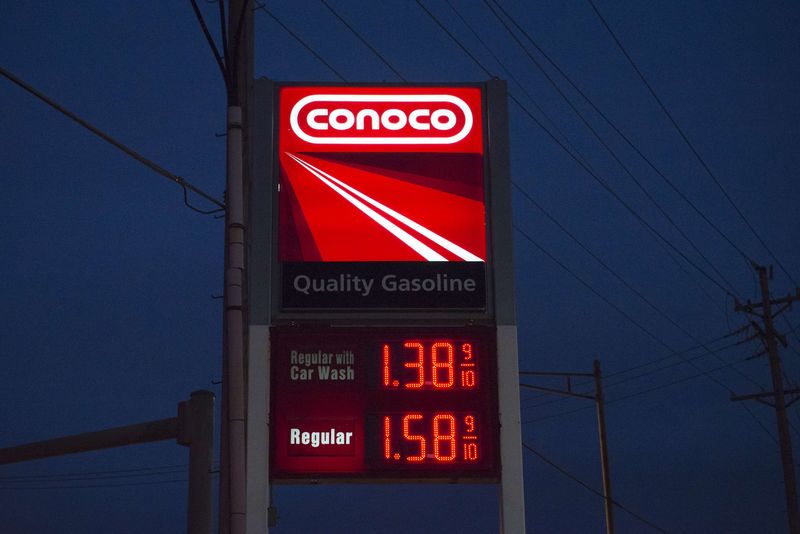This post was originally published on this site
https://i-invdn-com.investing.com/news/LYNXMPEB0S0JW_M.jpg
This Thursday, ConocoPhillips’ robust asset portfolio, strong balance sheet, and low leverage were highlighted as factors that enable it to weather even severe downturns. The company’s total net long-term debt position is less than $10 billion, remarkably low for a firm of its size. Its debt-to-capital ratio stands at a 10-year low of just 25.7%, indicating minimal reliance on debt in its capital structure.
In recent years, ConocoPhillips has been implementing a strategy focused on positive free cash flow (FCF) and judicious spending. This change in business model was initiated following the oil and gas crash of 2014 and 2015, which led many E&Ps to move away from aggressive drilling approaches that often resulted in significant profits during growth cycles but could also lead to severe losses during downturns.
Since 2015, ConocoPhillips has streamlined its portfolio through acquisitions and divestitures to create an asset base with substantial low-cost supply resources. This approach has driven cash flow growth and returns at a mid-cycle price of $60 West Texas Intermediate (WTI), the U.S. benchmark. The company aims for breakeven FCF at just $35 per barrel while growing its FCF by 11% per year over a ten-year plan.
The COVID-19 pandemic proved a stress test for ConocoPhillips’ resilience. Despite the average WTI crude oil price in 2020 being $39.16 per barrel and monthly fluctuations making it a challenging year, ConocoPhillips managed to generate $87 million in positive FCF, outperforming many of its peers.
Between 2015 and 2019, ConocoPhillips significantly reduced spending and increased FCF. More recently, the company has increased its capital expenditures but has done so judiciously, ensuring no detriment to its balance sheet. This commitment to a low-cost-of-supply strategy has been consistent, even with the current strength of oil and gas prices.
The company’s conservative approach within a cyclical industry has led to a significant increase in its stock. Over the last three years, ConocoPhillips’ stock has risen by 263.8%.
This article was generated with the support of AI and reviewed by an editor. For more information see our T&C.

